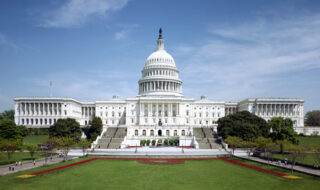Managing Your Unpaid SBA Loan and an EIDL Collection Update
Managing Your Unpaid SBA Loan and an EIDL Collection Update
April 5, 2024 Last Edit: July 26, 2024
During the COVID-19 Pandemic, you may have used loans to keep your business afloat. The Small Business Administration (SBA) deployed loan relief programs like the Paycheck Protection Program (PPP), the Economic Injury Disaster Loan (EIDL), and continued to offer SBA’s general business loans, including the 7(a) loans. The PPP was a forgivable loan, and many businesses sought and received loan forgiveness. Unlike the PPP, the EIDL was a non-forgivable loan, and for many businesses today, the deferment on these loan payments has ended.
Here we discuss what happens when you fall behind on your SBA loan payments, how to navigate the issue while SBA begins a new push to collect EIDL loans.
What if I Cannot Pay my SBA Loan?
If you find yourself missing payments on your SBA loan, your lender may classify your loan as delinquent. At this point, your lender will likely contact you insisting on debt repayment. Failure to comply will result in an SBA loan default.
What Happens if I Default on my SBA Loan?
Once you have defaulted on your SBA loan, your lender will reach out to inform you of your status and will try to collect on the debt. Depending on your loan agreement, the lender may have the right to seize any collateral you used to secure your loan. The lender can seize and sell any personal assets according to the terms of your SBA loan personal guarantee.
If your business and personal assets are not enough to cover your debt, your SBA lender will file a guarantee request with SBA. This request is the lender asking SBA to repay the portion that was guaranteed by the government. Even though SBA will repay the lender, you are still responsible for the debt and will receive a request for payment in the form of a 60-day demand letter.
In this time frame, you can repay the loan or submit an offer in compromise.
What is an Offer in Compromise?
When you’re struggling to repay your SBA debt, an Offer in Compromise (OIC) can provide a potential solution. This agreement can allow you to settle your debt for an amount that is less than what you currently owe.
To qualify for an OIC, you need to show SBA that you’re unable to repay the full amount within a reasonable timeframe. This involves providing detailed financial information to prove you are unable to meet the debt obligations. Additionally, your business must have ceased operations and liquidated its assets, using the proceeds to reduce the outstanding debt.
If you’re unable to come to an agreement with SBA or if you ignore its demands, the consequences can escalate. Your loan account may be transferred to the U.S. Treasury Department. The Treasury may be able to deploy certain initiatives to claim repayment such as withholding wages, tax refunds, or other government benefits. In more severe cases, the Treasury Department may initiate legal action, such as filing a lawsuit against you to recover the outstanding amount.
Preventing a Default on an SBA Loan
Defaulting on a loan can be catastrophic for a business, but luckily there are some strategies you can employ to avoid this.
First and foremost, you may consider reevaluating your finances to see if there are areas in which you can decrease spending and reallocate that money towards paying off your loan. You may even want to consider a business debt consolidation loan if you are struggling with paying off multiple loans at once.
If you are stretched thin as it is, you should reach out to your lender in an attempt to negotiate:
- Lengthening the term of your loan to lower your monthly payments;
- Only paying the interest on the loan for a period; and/or
- Deferment of payment for a period.
It is wise to consult with a business professional like a CPA or attorney who can assess your financial situation and advise on managing payments. In the most serious of situations, a business professional can advise you on processes like filing for bankruptcy if necessary.
Lastly, if you have not already, you may want to determine if you can take advantage of programs like the Employee Retention Tax Credit (ERTC) to help recoup some of the money owed on your loan.
EIDL Update and Treasury Deferment
The Economic Injury Disaster Loan (EIDL) program, administered by SBA, provided temporary financial relief to businesses affected by the COVID-19 pandemic. These low-interest non-forgivable loans were intended to help cover operating expenses and other financial obligations during times of economic hardship. The program offered loans of up to $2 million with favorable terms, such as low interest rates and long repayment periods.
To assist small business owners in paying off their EIDL, SBA rolled out the Hardship Accommodation Plan, which mitigated the cost of the loan for a short period in an attempt to give struggling business owners some relief.
Now SBA is cracking down to recover an estimated $30 billion in unpaid SBA loans. This past March, SBA began referring neglected COVID disaster loans with balances of $100,000 or less to the Treasury Department for collection. You may have already received a notice from the Treasury explaining that your unpaid EIDL debt has been referred to Treasury. If you find yourself struggling to repay your EIDL, you can deploy the same strategies as discussed above including reaching out to the lender, utilizing ERTC, or exploring bankruptcy options in extreme cases. It is important to note that these strategies are best implemented with a business professional like an attorney or CPA.
If you are current on your EIDL payments but still experiencing Treasury collection demands or are having trouble navigating repayment after your loan has been sent to Treasury, contact NFIB directly with your story at info@nfib.org.
If you have any additional questions regarding your SBA loan, you can still reach out to info@nfib.org or contact your local SBA district office here.
NFIB is a member-driven organization advocating on behalf of small and independent businesses nationwide.
Related Articles














